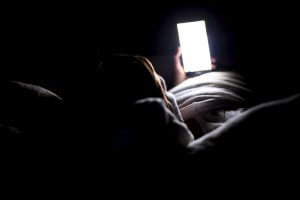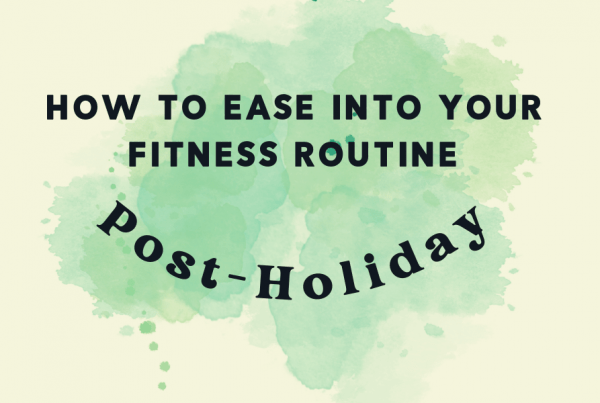
A good night’s sleep is just as essential as a healthy diet and exercising regularly!
In fact, the quality of sleep that you’re getting can directly affect both your mental & physical health. When you don’t get enough sleep, it can take a toll on your energy, productivity, emotional balance, and even your weight.
Having good, quality sleep is an issue faced by many women, including many of our clients.
It’s reported that 1 in 4 women have at least one symptom of insomnia, whether its difficulty falling asleep, staying asleep, or both.
It could be a result of troubled by worries about work, relationships or societal issues which keep their minds working at night. For many mothers, it started when they had their first child, with constant night feedings throwing sleep patterns out of whack. For others, with menopause comes hot flashes that wake them up mid-sleep.
Although women are not the only ones that have problems sleeping, we do experience unique issues; most notably hormonal changes that occur during our lifespans:
The menstrual cycle
Our monthly menstrual cycle causes significant changes in the production of our hormones, particularly oestrogen & progesterone.
Before the start of a woman’s period can cause a drop in the levels of these hormones, causing physical & emotional effects, which includes disrupted sleep.
Pregnancy
A woman experiences prominent hormonal changes when she is pregnant, and those changes often interfere with her quality of sleep.
Hormonal changes often begin during the first trimester, though many pregnant women report having the worst quality of sleep during the third trimester.
It’s reported that nearly 50% of pregnant women experience insomnia-like symptoms. These sleeping problems may even continue during the postpartum period.
Menopause
When a woman permanently stops having her period, it causes fundamental changes in hormone production. These changes can begin a few years before menopause, during a transitional period knows a perimenopause.
Sleep problems are extremely common during both perimenopause & menopause, and this is due to the hormonally induced changes to circadian rhythm, as well as hot flashes & night sweats.
How can I get a better night’s sleep?
#1 – Exercise during the day
Exercise is one of the best ways to improve your quality of sleep. And no, we’re not just saying it because we’re coaches – it’s proven by science! Those who exercise regularly feel less tired during the day and sleep better at night.

Regular exercise increases the amount of time you spend in deep, restorative stages of sleep. It’s also known to improve the symptoms of sleep apnea & insomnia.
As a matter of fact, the more vigorously you exercise, the more powerful the sleep benefits! But fret not if you’re new to working out, as even light exercise – like walking for just 10 minutes a day – can improve your quality of sleep.
However, it’s important to note that it can take several months of regular activity before you’ll be able to experience the full sleep-promoting effects.
Although daily exercise is key for a good night’s sleep, working out too late in the day or too close to bedtime may cause sleep problems – particularly moderate or vigorous workouts!
As exercise stimulates hormones such as cortisol & adrenaline, increases alertness and elevates body temperature. Instead, opt for low-impact, relaxing exercises such as gentle stretching or yoga, which can help promote sleep.
#2 – Be smart about what you eat & drink

Avoid big meals at night
Having large meals within two hours of bedtime can lead to hormone disruption which in turn leads to poor quality of sleep. Spicy or acidic foods can cause not only stomach trouble, but heartburn too. So instead, try to make dinnertime a little earlier in the evening!
Cut back on refined carbs & sugary foods
Consuming lots of refined carbs & sugar such as pasta, white rice & white bread during the day can trigger wakefulness at night, pulling you of the deep, restorative stages of sleep.
Reduce liquid intake before bedtime
Drinking large amounts of liquid before bedtime can result in frequent bathroom trips throughout the night.
While hydration is essential for your health, try to reduce your fluid intake as it gets closer to bedtime. Be sure to use the loo right before going to bed, to decrease the chances of waking up in the night.
Limit caffeine & nicotine
Caffeine can stay elevated in your blood for 6-8 hours. When consumed late in the day, caffeine stimulates your nervous system and could stop your body from being able to relax naturally at night.
Therefore, it isn’t recommended to drink excessive amounts of coffee after 3pm, especially if you already have trouble sleeping or are sensitive to caffeine! if you’ve got cravings for coffee late in the afternoon, opt for decaffeinated coffee instead.
Similarly, smoking is another stimulate that can disrupt your sleep, especially if you smoke close to bedtime.
#3 – Control your exposure to light
Daytime
Expose yourself to bring sunlight in the morning
The closer to the time you wake up, the better! In fact, the light hitting your face will help to wake you up. Try to have your breakfast or coffee by a sunny window, or on the balcony.
Let in as much natural light into your home or workspace as possible
Keep blinds & curtains open during the day, and opt to move your desk closer to the window!
Spend more time outside
Go for a walk during the day, have lunch or take your breaks outside!
Nighttime
Avoid bright screens within 1-2 hours of your bedtime
The blue light emitted by your phone, TV, laptop or table can be especially disruptive!
Say no to late-night television
Not only does the light from a TV suppress melatonin, but many programs are more stimulating rather than relaxing. Opt for audio books or listen to music instead!
When it’s bedtime, keep your bedroom dark
Opt for darker shaded or heavier curtains, to block light from windows. Or try a sleep mask!









